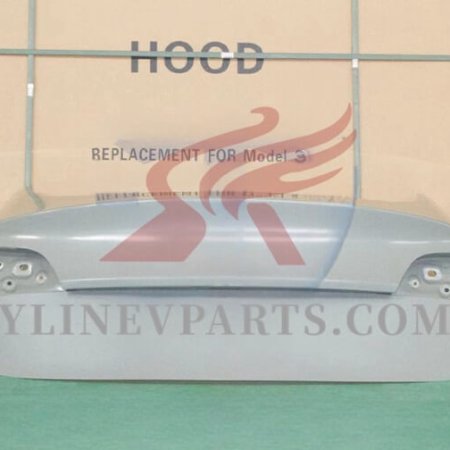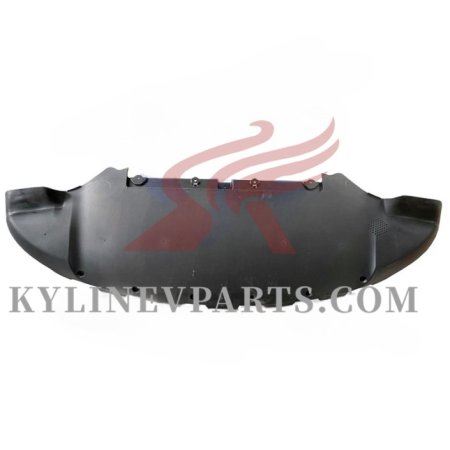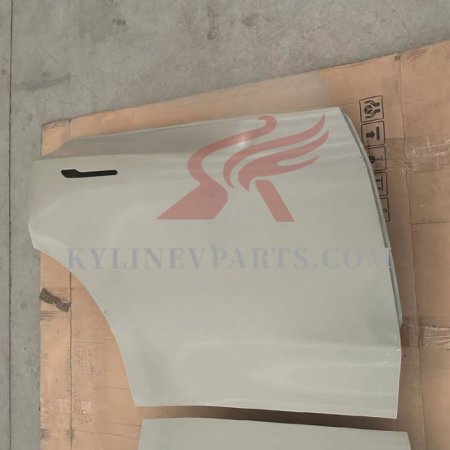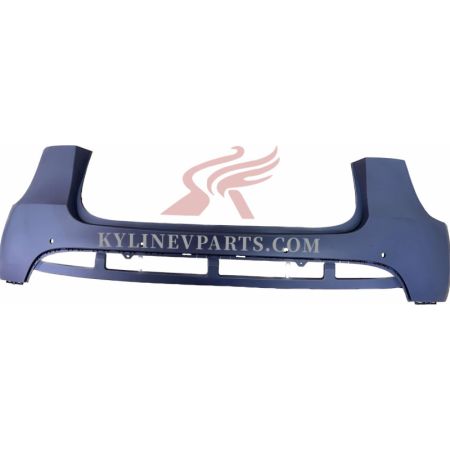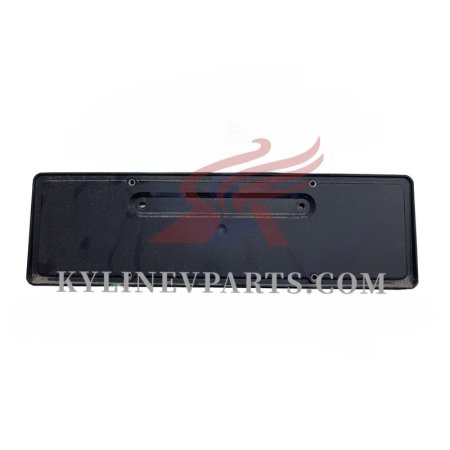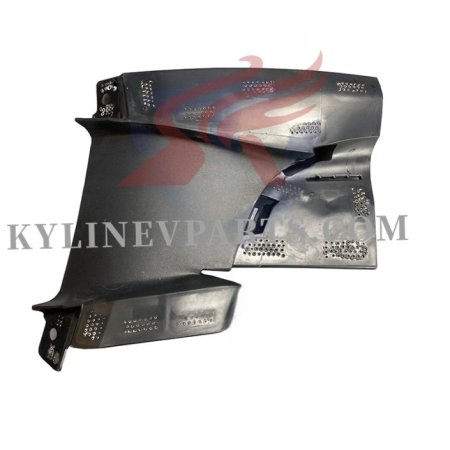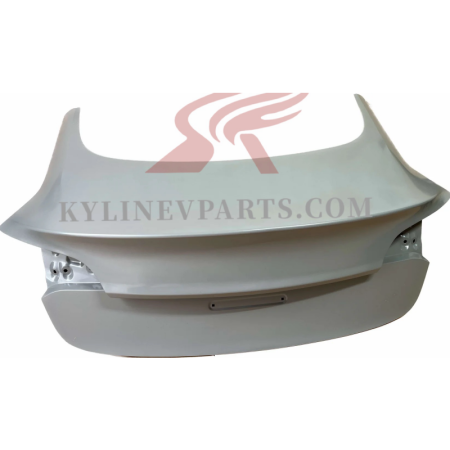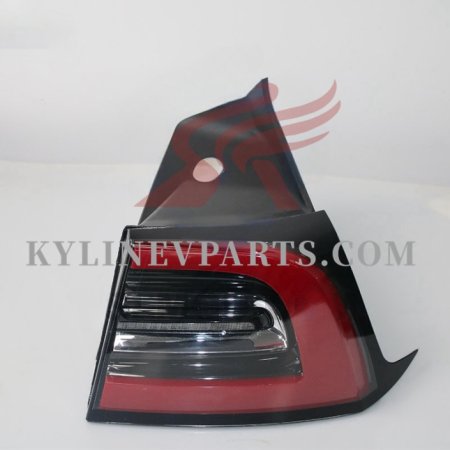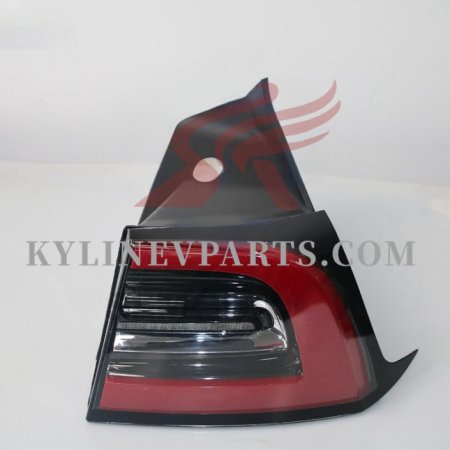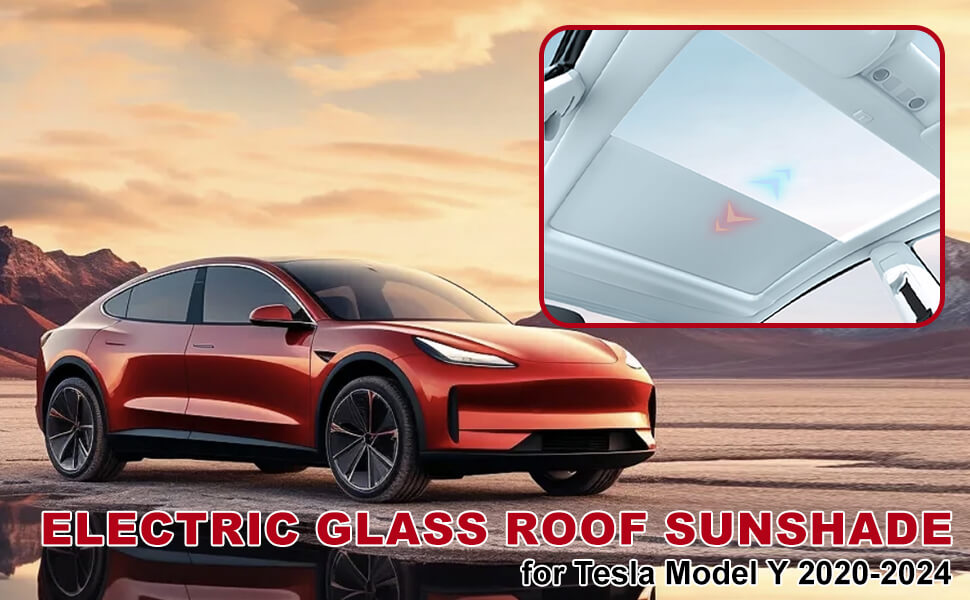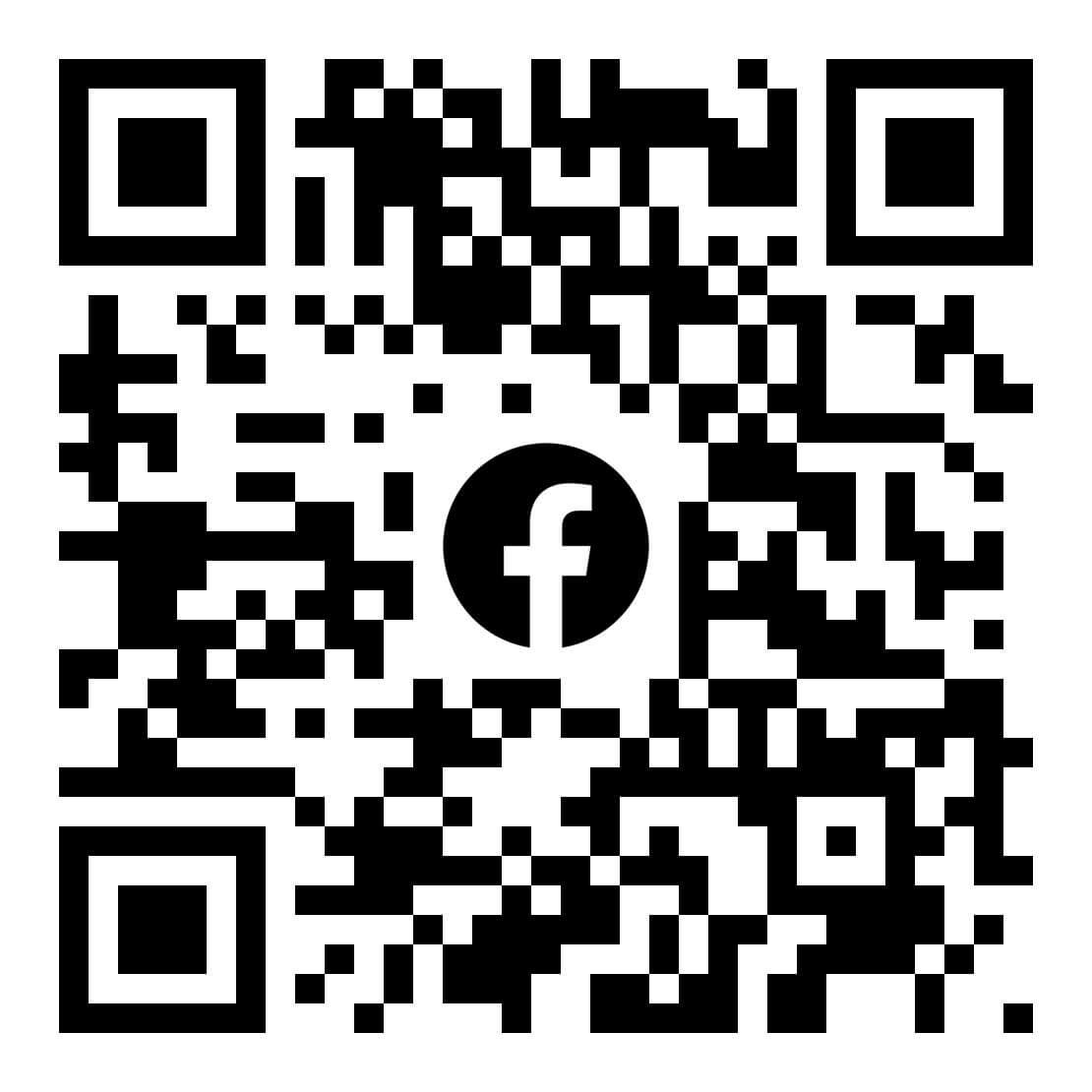How to Find Quality Tesla Wholesale Parts: Tips for Automotive Professionals
Introduction
In the fiercely competitive realm of automotive repair and maintenance, the ability to source high-quality Tesla wholesale parts with efficiency is not just advantageous—it’s essential for success. This need is amplified for professionals working with Tesla vehicles. Finding reliable wholesale parts can profoundly influence not only your operational effectiveness but also your customer satisfaction levels.
Navigating the world of wholesale purchasing requires a keen understanding of its subtleties. This knowledge enables you to tap into the myriad benefits that wholesale transactions offer—chief among them, significant cost savings and improved inventory management. The ability to secure parts at lower costs without compromising on quality means that you can maintain your margins while providing top-notch service.
Efficient sourcing also streamlines inventory management, reducing overheads and minimizing the risk of stock shortages or surpluses. By leveraging wholesale channels, you can ensure a steady supply of essential components, allowing you to focus more on the intricate aspects of vehicle repair and customer service rather than being bogged down by supply chain issues.
In essence, mastering the art of wholesale purchasing for Tesla wholesale parts not only supports the smooth operation of your business but also enhances your competitive edge in the automotive industry.
The Significance of Sourcing Quality Tesla Wholesale Parts
Tesla vehicles, celebrated for their cutting-edge technology and exceptional performance, demand parts that adhere to rigorous quality standards. Each component must meet stringent criteria to ensure the vehicle’s advanced systems and high-performance levels are maintained. For automotive professionals, sourcing Tesla wholesale parts is a strategic move that offers significant advantages.
By opting for wholesale channels, you gain access to high-quality components at more competitive prices. This not only boosts the efficiency of your repair services by streamlining parts procurement but also ensures that the vehicles you service uphold Tesla’s exacting standards. Utilizing wholesale parts means that you can deliver repairs and maintenance with confidence, knowing that the components meet the necessary specifications for performance and reliability.
In essence, leveraging wholesale sources for Tesla wholesale parts can lead to substantial cost savings while maintaining the high quality required to meet manufacturer standards. This dual benefit enhances both operational efficiency and customer satisfaction, positioning your business as a reliable player in the competitive automotive repair landscape.
Benefits of Buying Wholesale Versus Retail
Cost Efficiency: One of the foremost advantages of buying Tesla wholesale parts is the substantial reduction in costs. Wholesale purchases typically come with volume discounts that significantly lower the per-unit price compared to standard retail rates. This reduction allows businesses to optimize their budgets, making it easier to allocate resources efficiently. Moreover, the savings realized can be passed on to customers, enhancing your competitive edge in a crowded market and attracting more business.
Supply Chain Management: Another critical benefit of wholesale buying is its impact on supply chain management. Establishing strong relationships with wholesale suppliers can streamline inventory processes, reduce lead times, and ensure a reliable supply of parts. This steady flow of components helps prevent service delays, which can significantly improve customer satisfaction. Efficient inventory management and consistent supply are crucial for maintaining high service standards and operational efficiency.
Understanding Tesla Wholesale Parts
What Are Tesla Wholesale Parts?
Definition: Tesla wholesale parts are automotive components acquired in bulk from suppliers or manufacturers at discounted rates. These parts are typically intended for high-volume use or resale in settings like repair shops or dealerships. Unlike retail parts, which are sold individually or in smaller quantities, wholesale parts are purchased in large quantities, providing substantial cost savings.
Differences from Retail Parts:
Pricing: Tesla wholesale parts are usually available at significantly lower prices per unit than retail parts. This price reduction is a direct result of the bulk purchasing model, which bypasses many of the added costs associated with retail transactions. The savings come from purchasing larger quantities at once, which reduces per-unit costs.
Quantity: The scale of purchase is a key distinction. Wholesale transactions involve large volumes of parts, catering to businesses that require significant inventory. In contrast, retail purchases are generally restricted to individual items or smaller quantities, suited to personal or immediate needs rather than bulk supply.
Supply Chain Aspects: Wholesale buying often entails direct dealings with manufacturers or primary suppliers. This direct relationship can lead to better pricing, improved availability, and more favorable terms compared to retail supply chains, which may involve multiple intermediaries. This streamlined supply chain helps ensure that parts are both cost-effective and readily available.
Why Opt for Wholesale?
Cost Benefits: Lower Per-Unit Cost: Purchasing parts in bulk significantly reduces the cost per unit. For automotive professionals, this cost efficiency is crucial in managing their budgets while upholding high service standards. By minimizing the per-unit expense, businesses can better control their operational costs and improve their profit margins.
Volume Discounts: Wholesale suppliers often provide volume discounts, which further decrease the overall cost of parts. For high-turnover components, these discounts can translate into substantial savings. Leveraging these discounts allows businesses to invest more in quality service and customer satisfaction, rather than in expensive parts.
Bulk Purchasing Advantages:
Streamlined Inventory: Bulk buying enhances inventory management by allowing businesses to stock up on essential parts. This approach reduces the frequency of reorders and helps avoid stockouts, ensuring that parts are readily available when needed. Streamlined inventory processes lead to smoother operations and less downtime.
Better Supplier Relationships: Building a reliable wholesale supply chain establishes stronger relationships with suppliers. Such relationships can result in preferential treatment, access to exclusive products, and more favorable negotiation terms. Strong partnerships with suppliers often lead to improved service and additional benefits for businesses.
Common Wholesale Terms
- MOQ (Minimum Order Quantity): The minimum quantity of parts that a supplier requires to process an order. Understanding MOQ helps in planning bulk purchases and managing inventory effectively.
- Net Terms: Payment terms that allow buyers to pay for their purchases within a set period after the invoice date. This can be beneficial for managing cash flow.
- FOB (Free on Board): A shipping term indicating that the seller covers shipping costs until the goods reach a specified location. This term helps in understanding shipping responsibilities and costs.
Identifying Quality Parts
How to Assess the Quality of Tesla Wholesale Parts
Indicators of Quality: Material Standards: High-quality Tesla wholesale parts are crafted from materials that not only meet but often surpass industry benchmarks. Look for components made from superior metals, robust plastics, or advanced composites. These materials are chosen for their durability and their ability to maintain performance over time, ensuring that your Tesla remains reliable and efficient.
Manufacturer Reputation: The pedigree of the manufacturer is a significant indicator of part quality. Established manufacturers with a long history of producing dependable parts are generally a safer bet. Delve into the manufacturer’s reputation by researching its history and reading customer reviews. These insights can reveal whether they consistently deliver high-quality products.
Industry Certifications: Authentic Tesla parts frequently come with certifications from respected industry bodies. Look for certifications such as ISO 9001 or other automotive-specific standards. These certifications confirm that the parts have undergone stringent quality controls and adhere to recognized quality assurance processes.
In-House Quality Checks: Reputable suppliers often implement comprehensive in-house quality checks to ensure their parts meet established standards. It’s beneficial to inquire about these internal testing procedures and the quality assurance measures they employ. This will give you confidence that the parts are thoroughly vetted before they reach you.
Third-Party Testing Labs: Independent, third-party testing labs offer unbiased evaluations of part quality. Seek out parts that have been tested and certified by these reputable labs. Such testing provides an additional layer of assurance, confirming that the parts meet necessary performance and safety criteria.
Common Red Flags in Tesla Wholesale Parts
Identifying Fake Parts: Counterfeit parts can often deceive the eye with their outward resemblance to genuine components. However, these fakes frequently fall short in terms of quality and performance. To uncover these impostors, scrutinize the packaging, labels, and part markings carefully. Genuine Tesla parts, for example, are marked with specific part numbers and holograms that counterfeiters struggle to replicate. If anything seems off—whether it’s the texture of the print or the alignment of a hologram—consider it a red flag.
Avoiding Fraud: The best way to steer clear of counterfeit parts is by sourcing them through authorized suppliers. These trusted sources adhere to strict standards and offer guarantees of authenticity. Manufacturers often provide online verification tools where you can cross-check part numbers and other identifiers. When in doubt, use these tools to confirm that your parts are genuinely from the manufacturer.
Signs of Defects: When inspecting parts, look for clear signs of poor craftsmanship. Defects such as rough edges, uneven finishes, or ill-fitting components are indicative of substandard manufacturing. Quality parts should exhibit precise machining and a smooth, consistent surface. Any visible imperfections could compromise the part’s performance and longevity.
Substandard Manufacturing: Beware of parts that deviate from OEM (Original Equipment Manufacturer) specifications. Such irregularities often signal that the part has not been manufactured to the required standards. High-quality parts should align perfectly with OEM guidelines to ensure proper performance and safety. Consistency in manufacturing is vital; any deviation from the norm can lead to performance issues or potential safety hazards.
How to Verify Authenticity
Authenticity Certificates:
Importance and Source: Authenticity certificates verify that parts are genuine and meet manufacturer specifications. Always request certificates from suppliers and check their validity. This can often be done through the manufacturer’s website or customer service.
Part Number Verification: Cross-checking part numbers with official Tesla databases or resources ensures that the parts are legitimate. Tesla’s parts catalog can be a valuable tool for this verification.
Finding Reliable Suppliers
Where to Look for Trusted Wholesale Suppliers?
Kylin EV Parts Ltd is situated in Guangzhou, the hub of China’s automotive parts industry. Established in 2013, the company owns three factories specializing in car cover and dog mats, automotive sunshades, and car floor mats. We excel in customized production for renowned automobile brands such as Tesla, VW, BYD, and others.
In 2022, our international trade department was established, focusing on the integration of Tesla wholesale parts, as well as aftermarket modifications. As China’s premier B2B supplier, we offer a comprehensive service in integrating Tesla spare parts for numerous foreign sellers, both online and offline.
We extend a cordial invitation to collaborate with foreign dealers and explore OEM and ODM partnerships for our products. With our commitment to the most professional service, the highest quality products, and the most reasonable prices, we endeavor to provide unparalleled support.
What to Consider When Evaluating Suppliers?
Checking Supplier Reviews: Research suppliers by reading reviews and testimonials from other buyers. Google Reviews can offer valuable insights into a supplier’s reliability and customer service.
Industry Reputation: Look for suppliers with a strong track record in the automotive industry. Established suppliers with positive feedback are more likely to provide quality products and dependable service.
Certifications and Business History:
Validating Credentials: Verify the supplier’s certifications and business history. Reputable suppliers often hold industry-specific certifications and have a long-standing presence in the market.
Experience and Stability: Suppliers with extensive experience and financial stability are generally more reliable. Check their business history and financial health to ensure they can meet your needs.
How to Negotiate Terms with Suppliers?
Pricing Strategies: Negotiate bulk pricing and volume discounts to maximize cost savings. Discuss the potential for future orders to secure better rates.
Payment Terms: Establish favorable payment terms, such as net terms or extended payment periods, to manage cash flow effectively.
Shipping Arrangements: Agree on shipping terms, including delivery schedules and costs. Clarify responsibilities for shipping and handling to avoid unexpected expenses.
How to Ensure a Smooth Purchase Process?
Pre-Order Checklist:
Evaluating Samples: Before placing a bulk order, request samples of the parts to assess their quality and suitability. Inspect samples for material standards, craftsmanship, and compatibility with Tesla vehicles.
Negotiating Terms: Clearly discuss and agree on pricing, payment terms, and delivery schedules with the supplier. Ensure all terms are documented in the contract to avoid misunderstandings.
Order Placement:
Best Practices for Bulk Orders: When placing bulk orders, provide accurate specifications and quantities to avoid errors. Confirm receipt of order acknowledgment from the supplier and monitor the production process to ensure timely fulfillment.
Frequently Asked Questions (FAQs)
What Is the Difference Between OEM and Aftermarket Tesla wholesale parts?
OEM vs. Aftermarket Parts: OEM Parts: Original Equipment Manufacturer (OEM) parts are made by Tesla or a certified supplier. They are designed to meet the exact specifications of your Tesla vehicle, ensuring perfect fit and performance. OEM parts usually come with a warranty and are considered more reliable.
For more details on OEM Tesla wholesale parts, check out Tesla’s official parts catalog, which provides information on authentic parts directly from the manufacturer.
Aftermarket Parts: Aftermarket parts are produced by third-party manufacturers and may offer a range of options in terms of quality and price. While some aftermarket parts are of high quality and can be a cost-effective alternative, others may not meet the same standards as OEM parts. It’s important to choose reputable aftermarket parts and verify their compatibility.
Learn more about the differences between OEM and aftermarket parts in this article from the Automotive Aftermarket Industry Association.
How Can I Ensure the Parts I Buy Are Genuine?
Authenticity Certificates:
To ensure that you’re receiving genuine Tesla wholesale parts, always request an authenticity certificate from your supplier. This certificate serves as proof that the parts meet Tesla’s stringent standards and specifications. It is a crucial document for verifying the originality of the components.
For comprehensive guidance on obtaining and verifying authenticity certificates, visit Tesla’s guide on parts authenticity.
Part Number Verification:
Another effective method to confirm the authenticity of parts is by cross-checking the part numbers. Use Tesla’s official database or contact Tesla directly to verify that the part numbers correspond with those in their system. This step ensures that the parts are not only genuine but also compatible with your vehicle.
For part number verification, utilize Tesla’s part number lookup tool to ensure the accuracy and compatibility of the parts you are sourcing.
What Are the Most Common Challenges in Sourcing Tesla Wholesale Parts?
Quality Assurance:
Maintaining high standards in the quality of wholesale parts can be particularly challenging due to the varying levels of adherence to industry norms among different suppliers. It’s essential to conduct thorough due diligence to ensure the parts meet the required standards. This involves requesting samples and verifying certifications before making bulk purchases. High-quality assurance practices help avoid potential issues with performance and reliability.
For a deeper dive into quality assurance practices in the wholesale parts industry, explore this article from The Balance Small Business.
Supply Chain Issues:
Effective management of supply chain logistics, including ensuring timely delivery and accurate order fulfillment, presents a significant challenge. To navigate these complexities, establishing strong relationships with reliable suppliers and employing robust inventory management systems is crucial. These strategies can help mitigate potential disruptions and streamline operations.
For practical strategies for overcoming supply chain challenges, check out this resource from Supply Chain Digital.
Counterfeit Parts:
The risk of encountering counterfeit parts in the wholesale market is a serious concern. To safeguard against this, it is vital to purchase from reputable suppliers and rigorously verify the authenticity of parts. Counterfeits not only compromise safety but can also lead to operational inefficiencies and increased costs.
By addressing these common challenges, automotive professionals can make well-informed decisions when sourcing Tesla wholesale parts , thereby ensuring quality and reliability in their operations.


